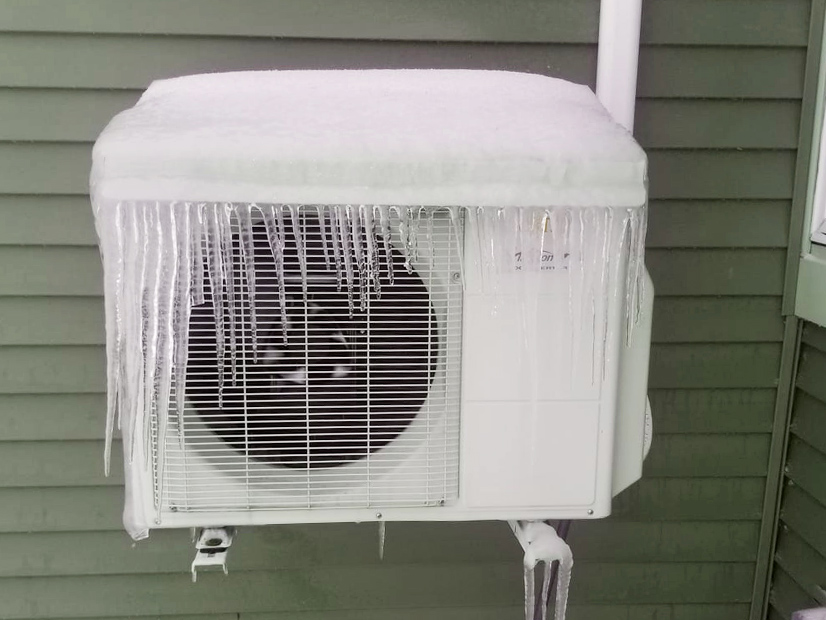
Maine is hitting a “tipping point” in its campaign to deploy 100,000 air source heat pumps by 2025, and much of that success has been in low- to medium-income households, according to Michael Stoddard, executive director of the Efficiency Maine Trust.
“We’re concentrating a lot on equity issues and how we can make sure that this [technology] is accessible to LMI homes and small businesses,” Stoddard said Thursday at the New Buildings Institute’s Getting to Zero Forum.
In January 2020, Gov. Janet Mills announced a suite of expanded heat pump rebates, including $2,000 for LMI homeowners in the Low Income Home Energy Assistance Program. That amount is double what other homeowners can receive for installing a qualified high-performance heat pump.
“We’re installing thousands per year for the LMI community,” Stoddard said, which is evidenced by a study of installation rates by region.
The densest heat pump penetrations are in the northern, sparsely populated areas of the state, where the median income is low, according to Stoddard. That outcome, he said, “is attributable to savvy customers, who are motivated to think about how they’re going to heat their homes.”
Maine surpassed 75,000 total heat pumps last year and installed 28,000 in 2020 alone, he said, adding that the state is on track to reach 180,000 installations by 2025. But it has a loftier goal of 500,000 installations by 2030, so Stoddard says market momentum is critical right now.
“The good news is that we’ve established that we can get on the trajectory we need to be on,” he said. “The big question is going to be, can we sustain it?”
To ramp up Maine’s heat pump market, Efficiency Maine had to demonstrate that the technology works in cold climates and establish a strong installer network. The agency has more than 1,000 registered heat pump vendors, according to Stoddard. Vendors must be trained and certified and sign a code of conduct, he said, and Efficiency Maine set “very high standards” for approved heat pump models.
“There are many models out there that won’t do well in cold weather,” he said, adding that approved systems can make heat down to ‑20 degrees Celsius in some cases and are highly efficient above 0 C.
An Efficiency Maine survey found that 20% of newly constructed homes in the state over the last three years had heat pumps as the sole heating source. Another 17% had heat pumps with a fossil-fuel system as backup.
For retrofits, Stoddard said, people are putting in one or two heat pumps to displace as much of their central system as possible but keeping the central system as backup. The different systems, he added, compete with each other.
“It would be vastly more economical and better for the environment if the heat pumps would run all the time, and then the central heating would only come on as needed,” he said. “But the thermostats call when they call, and we have to teach consumers how to optimize that.”
Relatively low electricity prices in Maine have helped show the economic benefit of choosing heat pumps. The state’s rates have been at 17 to 18 cents/kWh, while other parts of the Northeast pay 23 to 24 cents/kWh, Stoddard said.
Heat pumps also are competing with high-priced heating fuels.
“A lot of our homes and businesses are heated with oil and propane, and that makes the economics of heat pumps quite strong,” he said. “It’s much tougher against natural gas prices, but given the price swings that we’ve experienced in our state with oil and propane, customers are quite interested in options.”
If heat pumps are going to continue to compete on price, Stoddard says policymakers need to be cautious about how they seek to pay for climate solutions.
“If policymakers and advocates think they’re going to load up all the solutions for climate change by putting that cost on ratepayers, you have to ask yourself if that’s going to be sending the right price signal to electrify,” he said. “I’m not convinced that that’s the best way to pay for it.”
And rebates cannot be a long-term solution either.
When it’s “politically palatable,” Stoddard said, states should put codes and standards in place that call for heat pumps over polluting systems that “frustrate” climate goals.


